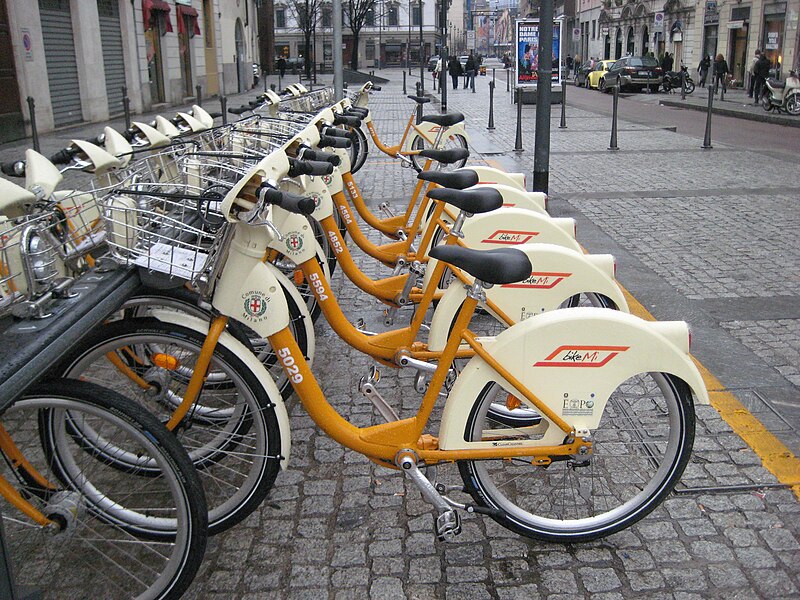In case you missed it, today is Earth Day. Celebrations have been going strong all weekend long. So join in the fun!
What can you do to note just how vital the earth is to our survival? (And it really is, down to the soil you walk on and the critters that burrow in it.) Tons of things! Pick one, try it out for today, then again tomorrow--see if you can keep it up all week. Make it a habit. But at least make an effort of some kind.
Waiting in your car for a while?
If you will idle for longer than 30 seconds, turn off the engine. The amount of gas your engine needs to start is equivalent to the amount used in 10 seconds of idling. Not only will it put money in your pocket (since you are burning money when you idle), it will also improve local air quality for all those people who are ...
 riding bikes!
riding bikes! Why not try a day without a car? I spent
five years in Germany without a car (we borrowed one --
once). We walked, biked, rode buses and trains. And let me tell you, we were in good shape. It might have taken a little longer to get places, but we never had to go to the gym (hey look--more money in your pocket!)
Not up for a two-wheeled commute?
Try carpooling. Not only will it save you money (around $650 per person if you ride with one other person each work day for a year and up to $1000 per person if you fill the car -
source), but fewer cars produce less pollution and reduce your
carbon footprint.
Or, if you work from home, maybe you could make some changes there.
Install a rain barrel. Climate change means more extreme weather events happening more often. Ninety degree weather in March? Two feet of snow in April? Yep. This is the new normal. And that means there will be periods of drought intermixed with heavy rain events. Rain barrels are a great way to catch some of the precipitation to use during the dry spells.
Head to your local garden center and ask for
regionally native plants for your garden. they'll be better able to tolerate the extremes with a lot less input from you (they usually require little to no fertilizer, no pesticides, and little water other than what falls from the sky). Choose perennials and they'll come back year after year.
Or plant a tree! Trees not only provide shade and cool the local area, they also play a critical role in maintaining the water cycle by drawing water up from the soil and releasing it into the air. This is why rain forests are rainy--the trees literally create rain by constantly releasing huge amounts of water into the air. Areas (like the Middle East) that have long been deforested eventually become too dry to support trees, which leads to further drying and eventual desertification. Don't want your area to become a desert? Take care of those trees.
What will you do to celebrate Earth day? I'm waiting for the weekend to put in dozens of native plants, shrubs and trees. Can't wait to watch my yard transform.




